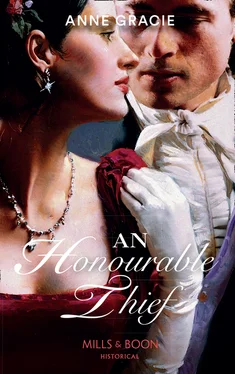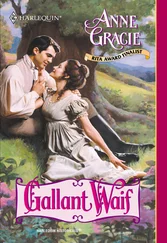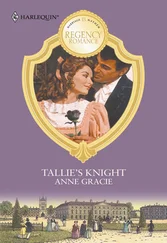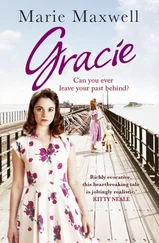Her mother had died giving birth to a little stillborn brother when Kit was six, but her father still spoke of her brother as if he was a person he had known and loved.
“If only he had not died. Now…” He looked at her with bitter grief. “My son would not let me die refusing to promise to avenge the great wrong done me.”
There was a long silence. All that could be heard in the room were the far distant noises of life going on outside the cottage: the chattering of monkeys in the jungle behind the house, the laughter of children in the nearby village, the squawking of a chicken.
And inside the cottage the sound of laboured breathing.
Not for the first time, Kit wondered about what had happened back in England, before she had even been born. He had always been bitter about it, and yet uncharacteristically silent about the details. He’d always vowed revenge, but on whom and for what, she’d never known.
Whatever it was, it had never stopped festering in him.
If it hadn’t happened, he’d said over and over—generally when he’d been drinking—he would be a rich man, respected, living in a beautiful big house in England. His beloved England.
She’d never quite believed it. But now she wondered. Had she been too quick to dismiss it as another one of Papa’s fantasies?
Had that—whatever it was—truly been the cause of her father living the sort of life he had? Drifting from one place to the next. Living from card game to card game. Arriving in obscure corners of the far-flung empire as Sir Humphrey This or The Honourable Mr That; leaving as a reviled card cheat and scoundrel…as they had just a few weeks ago from Sydney Town in the colony of New South Wales. An ignominious exit, tossed on the first outgoing ship…arriving in the Dutch colony of Batavia.
If the Great Wrong—as he put it—had not been done to him, would he have lived as a decent, contented man in England?
She would never know. But he was her father. She ought to give him the benefit of the doubt.
Kit bit her lip. He was her only living relative. And he was dying. Who was she to deny him peace on his deathbed? Her scruples suddenly looked a little like selfishness to her.
She looked down at him. His face was grey, his lips had an ominous tinge of blue. His eyes were closed, but he was not asleep—the tension in his body testified to that.
He looked like a man drained of all hope.
All her life Papa had always had a new scheme, a new horizon, plans…
Who was she to say no to a dying man’s last wish?
Kit sighed. She leaned forward and took his hand gently in hers. “I will do what a son would, Papa. I will retrieve your honour for you. Tell me what I must do.”
The heavy-lidded eyes opened, wary at first, then suddenly sharp with triumph. The long-fingered hand tightened convulsively and painfully as he pulled his daughter closer to whisper the instructions in her ear.
At last he finished, closed his eyes in exhaustion and sank back against the pillows.
The heat of the afternoon pressed on them. A hot moist wind lazily stirred the leaves in the trees outside. The only other sound was that of a man fighting for every breath.
Suddenly he opened his eyes. “Sent a letter to Rose from Sydney Town. Told her—” He choked suddenly and went into a long paroxysm of coughing.
He subsided shaken, grey and immeasurably weaker. Kit wiped his face with a cool, damp cloth and wondered who this Rose was.
“Hush now, Papa, do not worry yourself. I will do what is necessary. Just lie still and try to save your strength.”
A ghastly smile settled on his lips. “My son…” he muttered, so low, Kit could hardly hear him. “My beloved son…”
And with that, her father died. On a low pallet in a simple Javanese cottage on the other side of the world from where he belonged. Killed in a duel for cheating at cards. The final blow in a life that, according to him, had contained nothing but blows.
He died without a word of love or farewell to his only child, his daughter, the companion of his exile for the whole nineteen years of her life.
“Never mind, Miss Kit,” said Maggie Bone comfortingly. “He did value you, really. Some men never can say how they feel.”
Kit accepted the lie with a nod and a tremulous smile. “I know, Maggie.”
“I wish you’d never promised him, though.”
“Yes, but I did, so there’s no going back on it now.”
Maggie sighed. “London, is it?”
“Yes, London. To stay with someone called Rose.”
London 1816
Mr Hugo Devenish made his way through the quiet streets of London, his eyes on the faint, unnatural glow in the sky over the city. Gaslights. Twenty-six miles of gas mains had been laid around London, he had heard recently. Everyone was rushing to install the new miracle.
Sultan’s hooves clattered and echoed on cobbled stones. Hugo leaned forward and patted his mount on the neck. He’d carried his master gallantly for a long distance. Horse and master were pleasantly weary.
He passed the homes of several acquaintances and cast a casual eye over the dark and silent buildings.
Suddenly he stiffened. A shadow moved out of one of the tall mullioned windows on to a small balcony jutting from an upper storey of a large grey mansion nearby. There was something furtive, stealthy in the movement that attracted Hugo’s attention. He reined Sultan to a silent halt.
It was Pennington House, the home of Lord and Lady Pennington. Hugo knew the family slightly: Lord Pennington was a member of the Government, a stern, slightly pompous man in his early sixties; Lady Pennington was a prominent member of society. Their son, Hugo believed, was an intimate of his nephew, Thomas.
Shadowy figures ought not to be appearing from darkened windows of the homes of Government members at three in the morning, thought Hugo. This could well be a matter of national security. The war was over, but that did not mean there were no more Government secrets to be stolen and sold. There were always secrets.
Hugo watched intently, his eyes squinted against the glow thrown out by the gas lamp in front of the house. He cursed it silently. The bright glare made it very difficult to make out the figure behind the lamp—all he could see was a silhouette.
As he watched, the figure climbed on to the carved stone balustrade, paused for a moment and then leapt out into the air. Hugo’s breath caught—the thief would surely plummet to his death—but no. He clung to the next balcony like a monkey and climbed up. He was an agile little devil, thought Hugo.
He ought to go and rouse the household, to pound on the front door until someone came. But by that time, the thief would be gone. No, he would try to catch the scoundrel himself.
He watched as the miscreant shimmied skilfully up one of the shallow carved columns which graced the front of the house—not at all an easy task, as a man who had spent his boyhood climbing around the upper reaches of ships and masts well knew. He admired the agility and skill of the rascal, even as he resolved to foil him.
The thief clambered onto a low roof and disappeared around a corner. Hugo followed, wincing at the slight clatter that Sultans hooves made on the cobbles. He hesitated, then slipped off his horse, tied him to a nearby lamp-post and ran into the narrow alleyway which bordered the house.
It was difficult to see the scoundrel. There was only the occasional flickering of movement against the grey stone of the house, the faint scrap of a foot on a slate tile. Then a shadow moved swiftly and lightly along the roof that ran along the back part of the house and for a moment, the scoundrel’s silhouette was clearly visible in the soft golden glow the gas lanterns cast against the night sky.
Читать дальше












